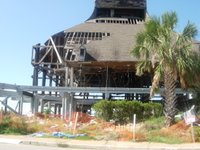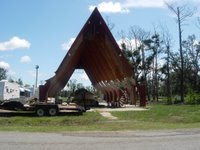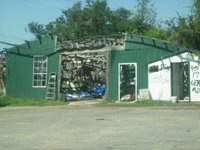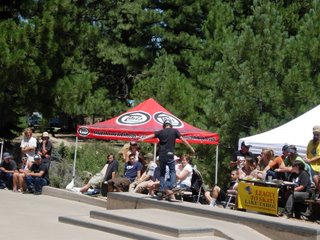It is time for something new. Brand new. I would say that it is not going to be work related, but I can’t guarantee that. I might be tempted to call it an upbeat post, but I never know where these things might take me. I am going in with just one little talking point… one little insight. I wouldn’t even call it an epiphany and certainly not a revelation. Just a curiosity of our time and the passing of time – let’s see where it goes. Come on down the rabbit hole with me…

We live in an 11-digit society. Ok, ten digits. I never really understood why we had to dial that pesky “1” when calling outside the area code. Isn’t that why we dialed the area code in the first place? And it’s always a “1,” can’t they just add it on at the factory – why bother us with it? Whatever – that’s not the point. WHEW! Regroup…
Ok, we live in a ten-digit world. Area codes don’t even designate area anymore. It’s just that there are so darned many phones, faxes, cell phones, modems, dial-ups, and on and on that we need 10 digits just to direct a call across the street. It wasn’t always that way and in some places, it still isn’t. Where, you say? How about little Colfax.
Two-two-three-two. That’s my number at work, 2232. City hall is 2313. Colfax is still a four-digit town. Maybe it’s still that way where you live. Just before I moved to Truckee, it was a five-digit town. The two possible prefixes were 587 and 582. My phone number might have been 7 1234 or 2 9876. Five digits. Yes, dialing the number required all seven or sometimes ten, but the designate – the pure essence of our local identity could be represented in four or five easy-to-remember digits.
When I was young, phones had no buttons. When we “dialed” a number, there was actually a dial. I used to know how that old switching technology worked and have since forgotten, but some of the remnants of that old switching system are still with us today. For instance, when I moved from one side of Fair Oaks to the other, I could not keep my phone number. My new house was in a different “local exchange” meaning I had to get a different prefix. And I thought that prefixes were largely meaningless much the same as area codes are becoming. Whoops! That’s almost an epiphany. That was close!
Whitecliff 1 -1234 or Whitecliff 8-1234. That is where the first two numbers of the prefix of my hometown came into existence. 941 or 948, 9 for “W” and 4 for “H.” That’s right, look at the buttons on your phone. In the old days… the really old days, you would tell the operator “Whitecliff 1 1234” and she (it was always a she) would route your call at a switchboard. When the automated switching equipment came into existence, they had to change those routing areas into something a machine could understand – numbers.
Why my hometown’s exchange was referred to as “Whitecliff” is anybody’s guess. A very long time ago, there used to be a Whitecliff Market downtown – but I can’t say if it was the chicken or the egg. I do know this: There ain’t any white cliffs anywhere close. It’s interesting though. And now the opposite appears to be occurring. As more and more digits are added, the sheer number of numbers is becoming overwhelming.

Perhaps there is hope. Not for the four-digit towns like Colfax. Like it or not, the 10-digit world has already overtaken it. The hope lies in the trend away from numeric identification altogether. True, we are just numbers and for the machines to track us it is the way it has to be, but as far as relating to each other – by phone – it’s changing. Today phones have progressed way beyond just buttons. They have screens and memory and are in all actuality mini computers with more power than the room-sized computers of yesteryear.
We scroll to a name and push a button. When the phone rings, it displays a name – sometimes even a photo of the party on the other side. I used to have at least 50 numbers stored in my head. Today? Maybe five. I don’t need to commit that memory anymore. I have an electronic device that does it for me. Several actually. Can I use that memory for something else? Dunno, but I do know that although I may be just a number, when I call someone - I’m vowels and consonants too.
 I want to put these images into perspective. Multiply times… like, a million and then maybe the magnitude of the destruction can be felt. And don’t forget, this is 364 days after the storm hit. Much of the debris that was strewn everywhere has been cleaned, burned, recycled or simply and somehow removed. It still resembles a war zone.
I want to put these images into perspective. Multiply times… like, a million and then maybe the magnitude of the destruction can be felt. And don’t forget, this is 364 days after the storm hit. Much of the debris that was strewn everywhere has been cleaned, burned, recycled or simply and somehow removed. It still resembles a war zone.
 In Mississippi, everything along the Gulf Coast is gone. All that is left are skeletons - from the knees down. In Mississippi, the FEMA trailers tend to be grouped into communities that look just like trailer parks except they’re on what were formerly school grounds, parking lots or any other area that could be cleared of debris. In New Orleans, the devastation was primarily from floodwaters that remained for weeks – the debris came more from the homes’ guts being removed and piled on the streets – in Mississippi, there was nothing left to gut.
In Mississippi, everything along the Gulf Coast is gone. All that is left are skeletons - from the knees down. In Mississippi, the FEMA trailers tend to be grouped into communities that look just like trailer parks except they’re on what were formerly school grounds, parking lots or any other area that could be cleared of debris. In New Orleans, the devastation was primarily from floodwaters that remained for weeks – the debris came more from the homes’ guts being removed and piled on the streets – in Mississippi, there was nothing left to gut. They are rebuilding. Like their counterparts in New Orleans, they’re a tough lot and not the type to simply give up and leave. It is a slow process. And like New Orleans, one of the most commonly posted signs states: “Now Open.” However, again like New Orleans, there is so very much left to do. And… there is more. It’s not just New Orleans and the surrounding area; it’s not just the Mississippi Gulf Coast; it’s everything in between.
They are rebuilding. Like their counterparts in New Orleans, they’re a tough lot and not the type to simply give up and leave. It is a slow process. And like New Orleans, one of the most commonly posted signs states: “Now Open.” However, again like New Orleans, there is so very much left to do. And… there is more. It’s not just New Orleans and the surrounding area; it’s not just the Mississippi Gulf Coast; it’s everything in between. There is devastation along Interstate 10 from New Orleans to the Mississippi state line. As far inland as 30 feet above sea level, their world was rocked. Although the flood waters from the storm surge came and left in one motion, combined with the winds she generated, Katrina showed no mercy. She was an equal-opportunity disaster and all that were in her path felt her wrath. The scars are healing, but Katrina has become the national standard by which all future disasters must be measured.
There is devastation along Interstate 10 from New Orleans to the Mississippi state line. As far inland as 30 feet above sea level, their world was rocked. Although the flood waters from the storm surge came and left in one motion, combined with the winds she generated, Katrina showed no mercy. She was an equal-opportunity disaster and all that were in her path felt her wrath. The scars are healing, but Katrina has become the national standard by which all future disasters must be measured. Now as the media, the government and the nation remembers the day that redefined so much, it is also time to remember not to forget. There was an impressive outpouring of support, financially and otherwise from a nation that was stunned, but it faded over time. The real work is being performed everyday by those who must to rebuild their homes and by the unsung volunteers that are selflessly giving more than just their money. They are giving something that is needed now more than ever – their sweat.
Now as the media, the government and the nation remembers the day that redefined so much, it is also time to remember not to forget. There was an impressive outpouring of support, financially and otherwise from a nation that was stunned, but it faded over time. The real work is being performed everyday by those who must to rebuild their homes and by the unsung volunteers that are selflessly giving more than just their money. They are giving something that is needed now more than ever – their sweat. Many of these efforts are coordinated and administered by volunteer organizations, and I’m not just speaking of the likes of the Red Cross or the Salvation Army, although their efforts cannot be understated. I am speaking of the efforts of literally thousands of small volunteer efforts from small locales… and they are doing big things. Many of these groups are small churches whose volunteers pay many of their own expenses to help those who have lost everything. These are the people who are getting the job done – this is the kind of help that is needed most. They know how to get things done – by doing it.
Many of these efforts are coordinated and administered by volunteer organizations, and I’m not just speaking of the likes of the Red Cross or the Salvation Army, although their efforts cannot be understated. I am speaking of the efforts of literally thousands of small volunteer efforts from small locales… and they are doing big things. Many of these groups are small churches whose volunteers pay many of their own expenses to help those who have lost everything. These are the people who are getting the job done – this is the kind of help that is needed most. They know how to get things done – by doing it.














